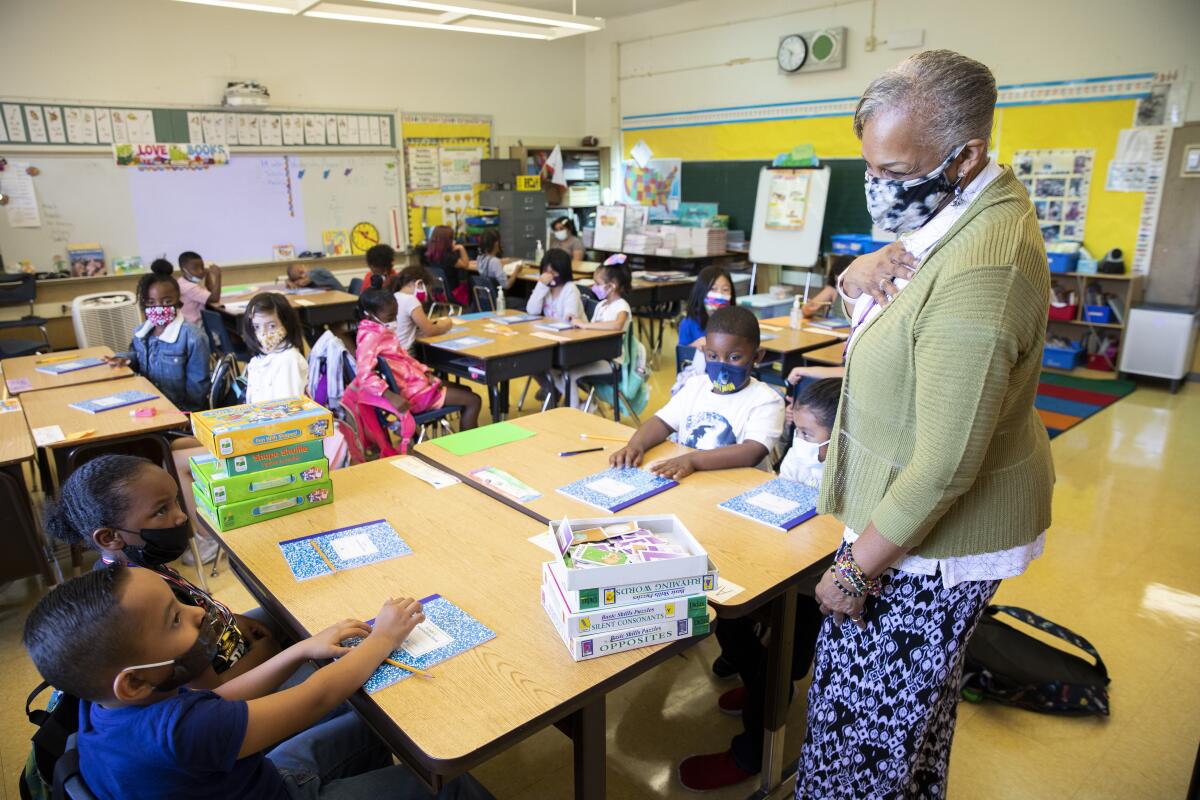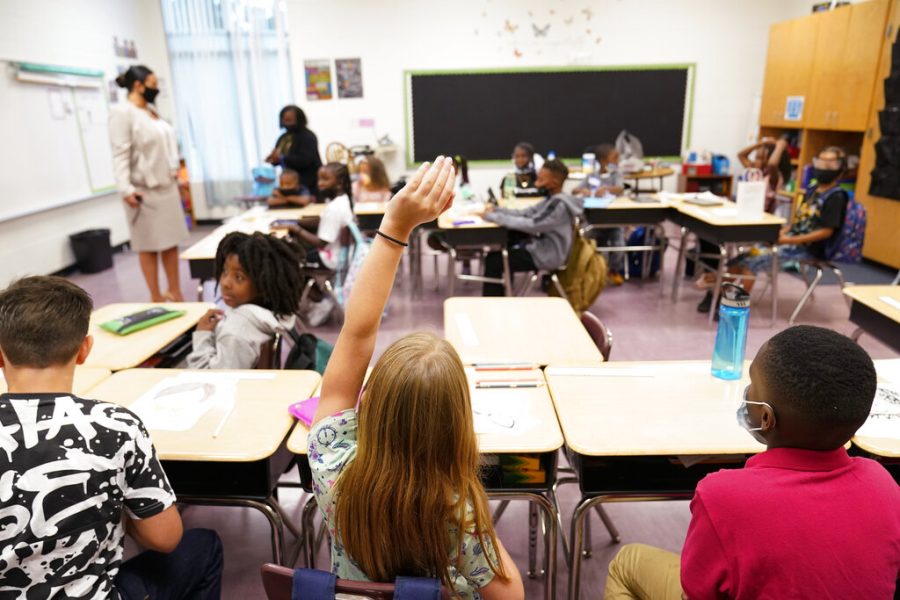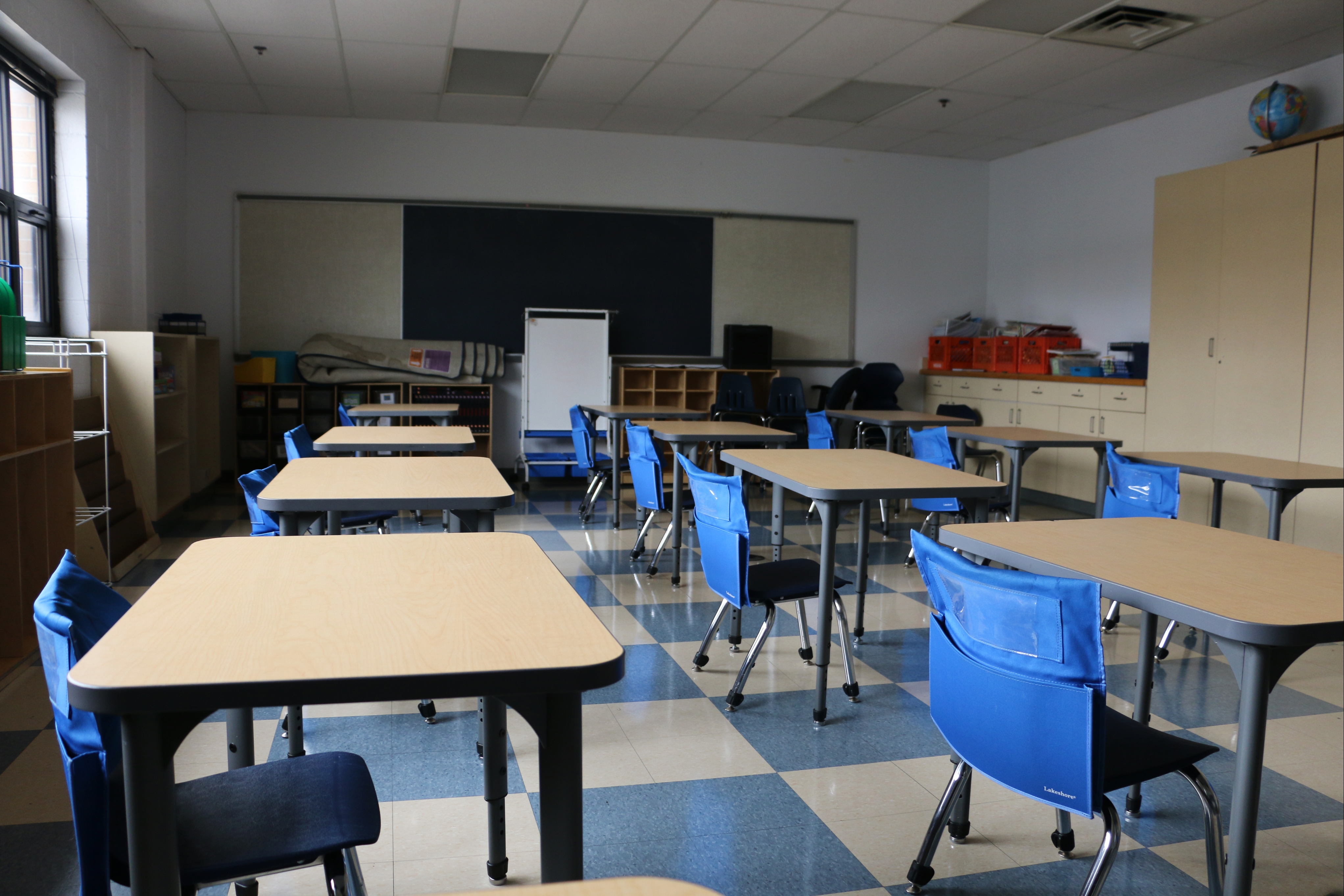Fundraising Ideas to Assist In Saving Temecula Schools and Programs
Wiki Article
Exactly How Schools Play a Critical Function in Shaping Future Leaders and Trendsetters
Colleges are important in shaping future leaders and pioneers with the farming of crucial reasoning, creativity, and cooperation. By incorporating project-based discovering and interdisciplinary researches, universities challenge pupils to assess and manufacture complicated details. Educators work as mentors, directing students and supporting their potential, while extracurricular tasks even more develop management abilities and resilience. This vibrant environment not only focuses on individual toughness however likewise stresses the significance of teamwork, essential for navigating tomorrow's difficulties. Exactly how specifically do these aspects interplay to produce a robust structure for future success?Cultivating Important Assuming
In today's quickly progressing world, fostering vital believing within schools has ended up being extremely important. As culture grapples with significantly intricate global difficulties, the capacity to analyze, examine, and synthesize details is essential. Colleges play a critical function in creating these abilities, preparing pupils to browse and deal with diverse issues with notified, reasoned decisions.To cultivate important thinking, educators use different pedagogical methods that urge active knowing and intellectual interaction. Class discussions, problem-based learning, and Socratic questioning contribute in promoting reflective and logical thought processes. By challenging trainees to interrogate assumptions and consider numerous point of views, these methods ensure a deeper understanding of subject past rote memorization.
Moreover, incorporating crucial thinking across the curriculum strengthens its relevance and applicability in diverse contexts. Subjects such as maths, science, history, and literature each deal special possibilities to create students' essential professors. Evaluating historical occasions needs assessing sources and recognizing context, while clinical query needs extensive hypothesis testing and evidence-based thinking.
Ultimately, instilling critical assuming skills in trainees equips them with the cognitive devices required for long-lasting knowing and adaptability. It is with this fundamental competence that future leaders will have the ability to innovate, fix problems, and add meaningfully to culture.
Encouraging Creative Thinking
Embracing imagination within educational frameworks galvanizes trainees to assume beyond traditional borders and explore innovative options. By incorporating creative ventures and imaginative thinking workouts into the curriculum, colleges cultivate an environment where creativity and creative thought are valued. This approach not only improves the academic experience yet likewise furnishes trainees with the capacity to take on real-world challenges in unique methods.School can cultivate imagination with diverse means such as project-based discovering, interdisciplinary research studies, and the consolidation of arts and technology. Project-based understanding, as an example, urges trainees to use their expertise in functional, often collective, jobs that demand inventive analytic skills. Interdisciplinary studies allow pupils to draw links between various topics, consequently expanding their point of views and enhancing their imaginative abilities.
In addition, supplying students with opportunities to involve with arising technologies, such as coding and electronic design, even more supports their imaginative potential. These tasks trigger trainees to experiment, fall short, and repeat, which are crucial elements of the innovative procedure (Save Temecula Schools). By keeping a supportive environment where testing is urged, schools can ensure that pupils create the confidence to pursue ingenious ideas
Basically, supporting imagination in educational settings is indispensable for forming future leaders and trendsetters with the ability of resolving intricate worldwide concerns with resourcefulness.
Supporting Partnership

Carrying out group-based understanding components and participating projects enables pupils to experience the characteristics of synergy firsthand. This not just prepares them for the collective nature of contemporary work environments yet also nurtures leadership qualities as they commonly need to tackle duties such as job managers or team planners. In addition, collaboration in the classroom can damage down social his response barriers and promote inclusivity, guaranteeing that each trainee really feels valued and listened to.
Furthermore, integrating modern technology can further support collective efforts. Devices like shared electronic work areas and interactive platforms allow pupils to collaborate successfully, also outside the class. As pupils establish these collaborative abilities, they are better geared up to take on complicated obstacles and innovate, preparing for their future duties as trendsetters and leaders.
Function of Educators as Advisors

Mentorship includes tailored interest, where teachers identify and nurture specific toughness and address weak points. Save Temecula Schools. With one-on-one communications, teachers can tailor their suggestions and support to satisfy each pupil's distinct requirements, fostering a sense of self-confidence and strength. This customized strategy grows a growth frame of mind, motivating pupils to watch failures as possibilities for learning and growth
Additionally, instructors act as function versions, showing the worths of integrity, perseverance, and compassion. Their actions and attitudes give a blueprint for students to imitate, instilling a feeling of honest responsibility and social recognition. By producing a comprehensive and encouraging classroom atmosphere, teachers enable students to create interpersonal skills that are important for effective leadership.
In essence, the mentorship given by teachers lays a foundational structure for the advancement of future leaders, equipping them with the knowledge, abilities, and values needed to succeed in an ever-evolving globe.
Impact of After-school Activities
When integrated properly into the instructional structure, extracurricular activities significantly improve trainee development and leadership possibility. These activities offer students with chances to discover rate of interests beyond the traditional educational program, promoting a well-rounded skill set.In addition, extracurricular involvement encourages creative thinking and development. Trainees engaged in debate, music, or drama clubs learn to think critically and technique issues from diverse viewpoints. These experiences impart confidence, enabling pupils to voice their concepts and take effort in numerous settings. By collaborating with peers from different histories, students additionally create empathy and communication abilities, necessary traits for future leaders.
Study indicates that pupils involved in such programs tend to have higher qualities and much better participation documents. Hence, institutions that prioritize a well balanced approach to education, incorporating robust extracurricular programs, are much more likely to produce pioneers and leaders equipped to satisfy the obstacles of the future.

Conclusion
In final thought, institutions dramatically form future leaders and innovators by supporting essential thinking, imagination, and cooperation among students. By cultivating a helpful atmosphere that values individual toughness and teamwork, institutions outfit pupils with the necessary skills to browse future obstacles and drive development.As students develop these collaborative abilities, they are much better outfitted to take on intricate difficulties and innovate, laying the groundwork for their future roles as innovators and leaders.
By fostering crucial thinking and problem-solving abilities, educators aid trainees browse complicated challenges, preparing them for management duties in different fields.
By collaborating with peers from different histories, students likewise establish compassion and interaction abilities, important traits for future leaders.
In conclusion, institutions substantially shape future leaders and innovators by supporting critical reasoning, creativity, and partnership amongst students. By cultivating a helpful setting that values individual toughness and teamwork, institutions outfit trainees with the necessary abilities to navigate future challenges and drive innovation.
Report this wiki page